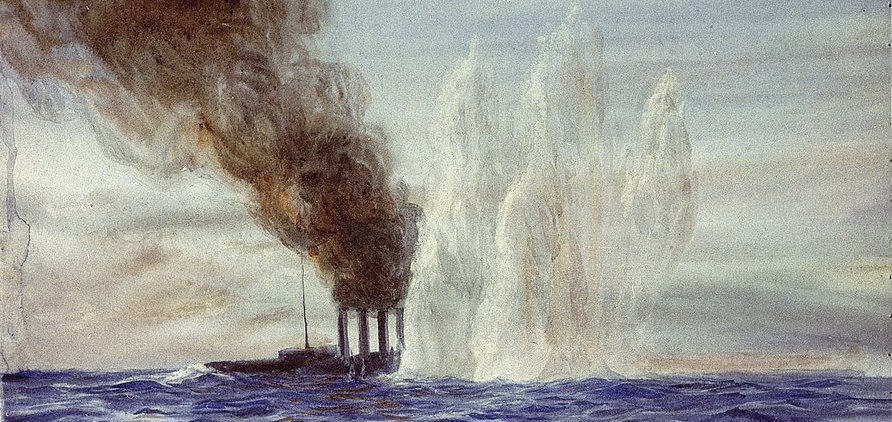
Q&A: Churchill Libeled by Lord Alfred Douglas
Q: The libel case, 1917-23
“I came across information that an aristocrat libeled Churchill over the Battle of Jutland, saying he was working for the Jews. Can you help?” —P.B., London
A: Lord Alfred Douglas
You refer to the 1917 accusation by Lord Alfred Douglas (1870-1945), poet son of the 9th Marquess of Queensberry and sometime friend of Oscar Wilde. Douglas was clearly guilty. He alleged that Churchill had profited by £40,000 after manipulating the press with false communiques following the Battle of Jutland in May 1916.

It is possible that Douglas acted more from his virulent anti-Semitism than disdain for Churchill. He claimed that WSC was in the pay of his Jewish banker friend Sir Ernest Cassel.
According to Douglas, Churchill arranged for the government to announce a naval defeat at Jutland (which it did). The result was the collapse of British stocks in New York (which they did).
Churchill then allegedly issued a statement (which he did) saying it wasn’t such a defeat after all. The stocks rebounded and Cassel and his friends, who had allegedly bought low, allegedly sold high.
To bolster his case, Douglas pointed to Churchill’s bachelor flat at 12 Bolton Street, where Cassel had provided library furnishings when Churchill had moved there in 1905.
Repercussions
The First World War prevented a response by Churchill at the time, but it followed six years later. In 1923 on Churchill’s behalf, the Crown filed a criminal libel action against Lord Alfred Douglas. Churchill testified, denying the accusations or any contact with Ernest Cassel concerning the Battle of Jutland. He stated that he was asked to issue his favorable analysis of Jutland by the government in order to boost public morale.
Although Sir Ernest did help the young Winston with books for his first bachelor flat, it had nothing to do with Jutland, which occurred over a decade later. Douglas was found guilty and sentenced to six months in prison.
Magnanimity
The years passed and by 1940 Churchill was prime minister. Time had mellowed Lord Alfred Douglas. In July 1941, he published a sonnet, Winston Churchill:
Not that of old I loved you over-much
Or followed your quick changes with great glee
While through rough paths or harsh hostility
You fought your way, using a sword or crutch
To serve occasion. Yours it was to clutch
And lose again. Lacking the charity
Which looks behind the mask, I did not see
The imminent shadow of “the Winston touch.”
Axe for embedded evil’s cancerous roots,
When all the world was one vast funeral pyre,
Like genie smoke you rose, a giant form
Clothed with the Addisonian attributes
Of God-directed angel. Like your sire
You the rode the whirlwind and out-stormed the storm.
Douglas’s nephew sent an advance copy of the sonnet to Churchill. The Prime Minister’s response lived up to his motto, “In victory, magnanimity”:
Thank you very much for the sonnet you sent me which I shall keep and value. Tell [Lord Alfred Douglas] from me that “Time Ends All Things.”
Further reading
The most thorough account of these events, with transcript excerpts from two court trials, is Michael McMenamin, “Churchill and the Litigious Lord: Two Trials and a Sonnet,” published by the Hillsdale College Churchill Project: Part 1 and Part 2.







One thought on “Q&A: Churchill Libeled by Lord Alfred Douglas”
Sheer class.
Great piece, Richard, as ever.
Comments are closed.